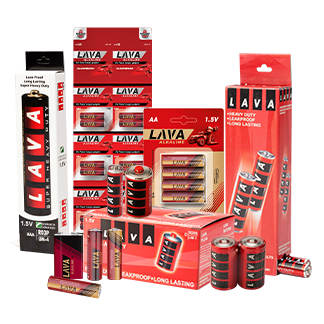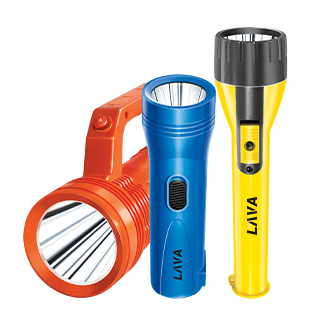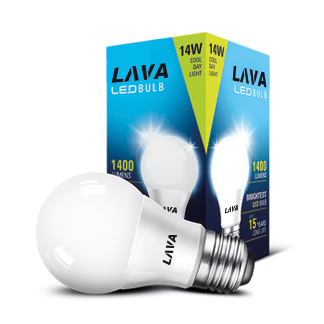- Home
- FAQ
ZINC CARBON BATTERIES
When I should I should use LAVA Super Heavy Duty super heavy duty zinc carbon batteries?
LAVA Super Heavy Duty batteries meets a wide variety of low drain applications, such as:
• Clocks
• Flashlights
• Lanterns
• Garage door openers
• Remote controls
• Boom Boxes
• Calculators
For devices that have a higher drain, try LAVA Alkaline batteries.
Is it a problem to mix batteries of different chemistries, brands or ages?
Mixing battery types in a device is not recommended and can significantly increase the potential for leakage and reduced performance. The biggest problem is an imbalance in available energy between the installed batteries. So always practice smart battery care and replace used batteries with new, fresh batteries of the same brand—preferably Lava.
Is it dangerous to carry loose batteries in a purse or pocket?
Batteries can be short-circuited by metal items such as coins, keys, paper clips, etc. A battery that experiences a short circuit can become very hot, increasing the potential for leakage and personal injury.
Is there a guarantee on LAVA Super Heavy Duty carbon zinc batteries?
Eveready will repair or replace, at our option, any device damaged by LAVA Super Heavy Dutybatteries. Guarantee void if batteries are charged by user or device.
Should I store carbon zinc batteries in the refrigerator?
Storing batteries in refrigerators or freezers is not required or recommended for batteries produced today. In fact, cold temperature storage can harm batteries. To maximize the performance and shelf life, store the batteries at normal room temperatures with moderate humidity levels.
How long does carbon zinc batteries last in a device?
There are several factors that impact battery run time. The most critical is the rate at which a device consumes power. A high-drain device like a digital camera will deplete a battery much faster than a low-drain device like a clock.
How should I dispose of carbon zinc batteries?
It’s safe to drop them right in the household trash. As LAVA batteries are 0% mercury and cadmium.
What increases the potential for carbon zinc battery leakage?
Typically, carbon zinc batteries will not leak under normal storage and usage conditions. However, the potential for leakage is significantly increased if batteries are subjected to deep discharging, charging, mixing of battery chemistries, mixing of fresh and used batteries, physical damage, or extended exposure to high temperature. Carbon zinc battery leakage is extremely caustic and contact with bare skin should be avoided. In the event that battery leakage comes in contact with your skin, flush the area for 15 minutes with copious amounts of water.
Can carbon zinc batteries be charged in a NiMH or NiCd battery charger?
Standard carbon zinc batteries are not designed to be recharged and should never be placed in any battery charger. Attempting to charge carbon zinc batteries will significantly increase the likelihood for leakage to occur.
ALKALINE BATTERIES
When should I use LAVA alkaline batteries?
LAVA alkaline batteries are the ideal power source for low to mid drain devices such as:
• Motor Toys
• Security Devices (Alarms, Smoke Detectors)
• Compact Disc Players
• Pagers
• Electronic Organizers
• Shavers
• Portable Radios
• Portable TV’s
• Remote Control Models
• Electronic Photoflash
How long do LAVA alkaline batteries last in the package?
LAVA Alkaline has a shelf life of up to seven years in the package.
Should I store alkaline batteries in the refrigerator?
Storing batteries in refrigerators or freezers is not required or recommended for batteries produced today. In fact, cold temperature storage can harm batteries. To maximize the performance and shelf life, store the batteries at normal room temperatures with moderate humidity levels.
How long do alkaline batteries last in a device?
There are several factors that impact battery run time. The most critical is the rate at which a device consumes power. A high-drain device like a digital camera will deplete a battery much faster than a low-drain device like a clock. Other factors affecting overall battery performance are environmental conditions, device usage patterns (continuous or intermittent) and battery size/chemistry.
Are alkaline batteries considered hazardous waste?
No. alkaline batteries are classified as common household waste. Great strides have been made to make alkaline batteries better for the environment friendly and they’ve been manufactured free of added mercury. Classification details may vary and should be confirmed in each specific geographical location.
Is it a problem to mix batteries of different chemistries, brands or ages?
Mixing battery types in a device is not recommended and can significantly increase the potential for leakage and reduced performance. The biggest problem is an imbalance in available energy between the installed batteries. So always practice smart battery care and replace used batteries with new, fresh batteries of the same brand—preferably LAVA.
Is it dangerous to carry loose batteries in a purse or pocket?
Batteries can be short-circuited by metal items such as coins, keys, paper clips, etc. A battery that experiences a short circuit can become very hot, increasing the potential for leakage and personal injury.
What increases the potential for alkaline battery leakage?
Typically, alkaline batteries will not leak under normal storage and usage conditions. However, the potential for leakage is significantly increased if batteries are subjected to charging, mixing of battery chemistries, mixing of fresh and used batteries, physical damage, extended exposure to high temperature or deep discharging. Alkaline battery leakage is extremely caustic and contact with bare skin should be avoided. In the event that battery leakage comes in contact with your skin, flush the area for 15 minutes with copious amounts of water.
Can alkaline batteries be charged in a NiMH or NiCd battery charger?
Standard alkaline batteries are not designed to be recharged and should never be placed in any battery charger. Attempting to charge alkaline batteries will significantly increase the likelihood for leakage to occur. Rechargeable alkaline batteries made by other manufacturers may also leak if placed in a NiMH or NiCd charger and should only be recharged in a charger designed for that system.
Our Product

Batteries
A wide range of batteries designed to meet the needs of every user and suit every occasion.





